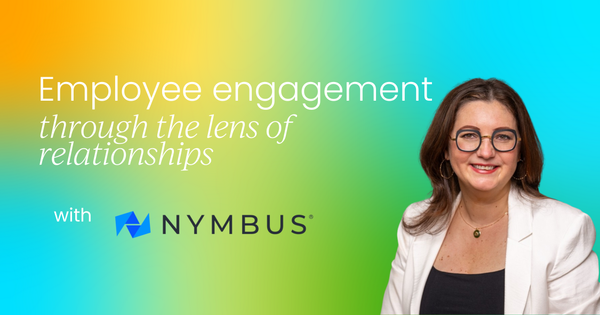In this article, Crina Pupaza, Chief People Officer at Nymbus, explores the surprising parallels between personal relationships and workplace connections. Just as romantic relationships progress through honeymoon phases, reality checks, and deeper commitment, our professional relationships follow similar patterns.
But today's workplace is evolving rapidly, with more than 72 million Americans now choosing independent work. This shift challenges traditional employment models and requires HR leaders to rethink how we attract, engage, and retain talent. Drawing on relationship psychology and current workforce trends, this article offers practical strategies for building meaningful connections with both traditional employees and independent workers.
The unicorn employee scenario
I wanna ask you, you are all HR leaders. You have been in the space. Did you encounter this scenario?
A CEO, a leader in your organization comes to you and says, we need to find the next amazing talent. Someone who has this skill set, is creative, and they are engaged. They are going to get our business to the next level. They have this skill and that skill and the other skill.
And you're thinking, here we go. Another unicorn. What am I gonna do? Where am I gonna find them? And you start working. You look at your resources. You look at your search partners. You go to the market. You research. You get your recruiting involved. You get everyone involved.
And after months, you finally find her. She exists. You hire her and you bring her in the organization. Amazing onboarding because we all have put that in place, right? We get her through the process. She starts. She's rocking it. Everything is going really, really well. You're starting to see results. The seeds are there and they are growing.
And then, pow, a year and a half later, she resigns.
Did this happen to you? It does happen. Right?
So you wonder, what's love got to do with it? Why do we need to understand relationships in the context of work? Well, believe it or not, we share a lot of similarities.
You know, we talk about the example of hiring an employee, but as we look at the different stages, we realize that we can learn more from our personal relationships as they parallel to our work relationships. And hopefully, as we go through this, we can get some insights and together maybe figure out if we are all looking for that everlasting love or are we looking for something a little different?
Personal and professional relationships – the parallels
So to lean forward, let's think backwards. I'm gonna ask you all to take twenty seconds and think of a special relationship you have in your life. Be it that first love, someone that was really special, someone that you're still with, someone that you're thinking about and you get butterflies as you think about that person.
And tell me if this resonates: In both personal and professional settings, we are chasing the same things. We are chasing trust, respect, and growth.
Does it apply to your personal relationships? Yes.
Does it apply to your work relationships? Very much so.



 Follow us on LinkedIn
Follow us on LinkedIn
